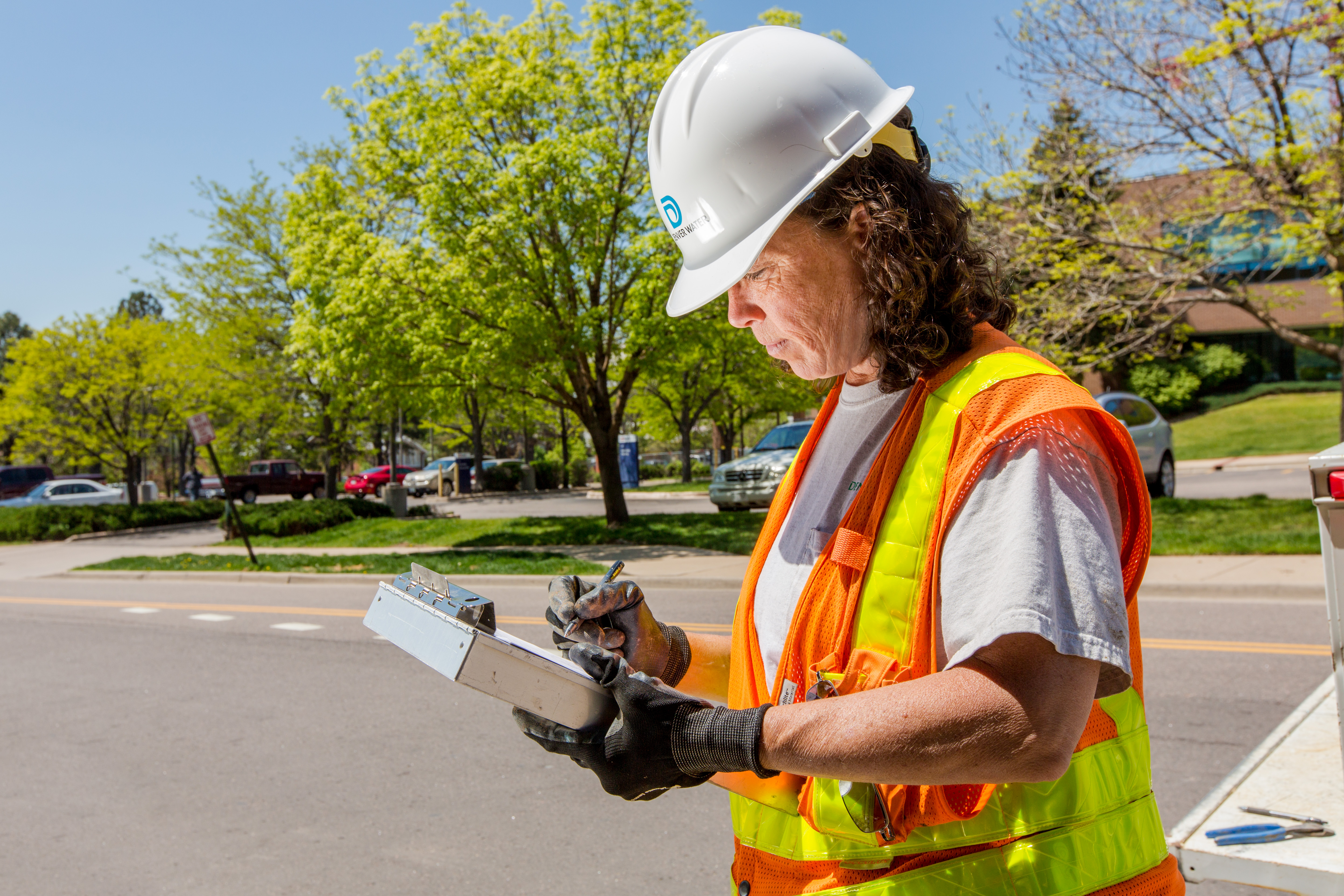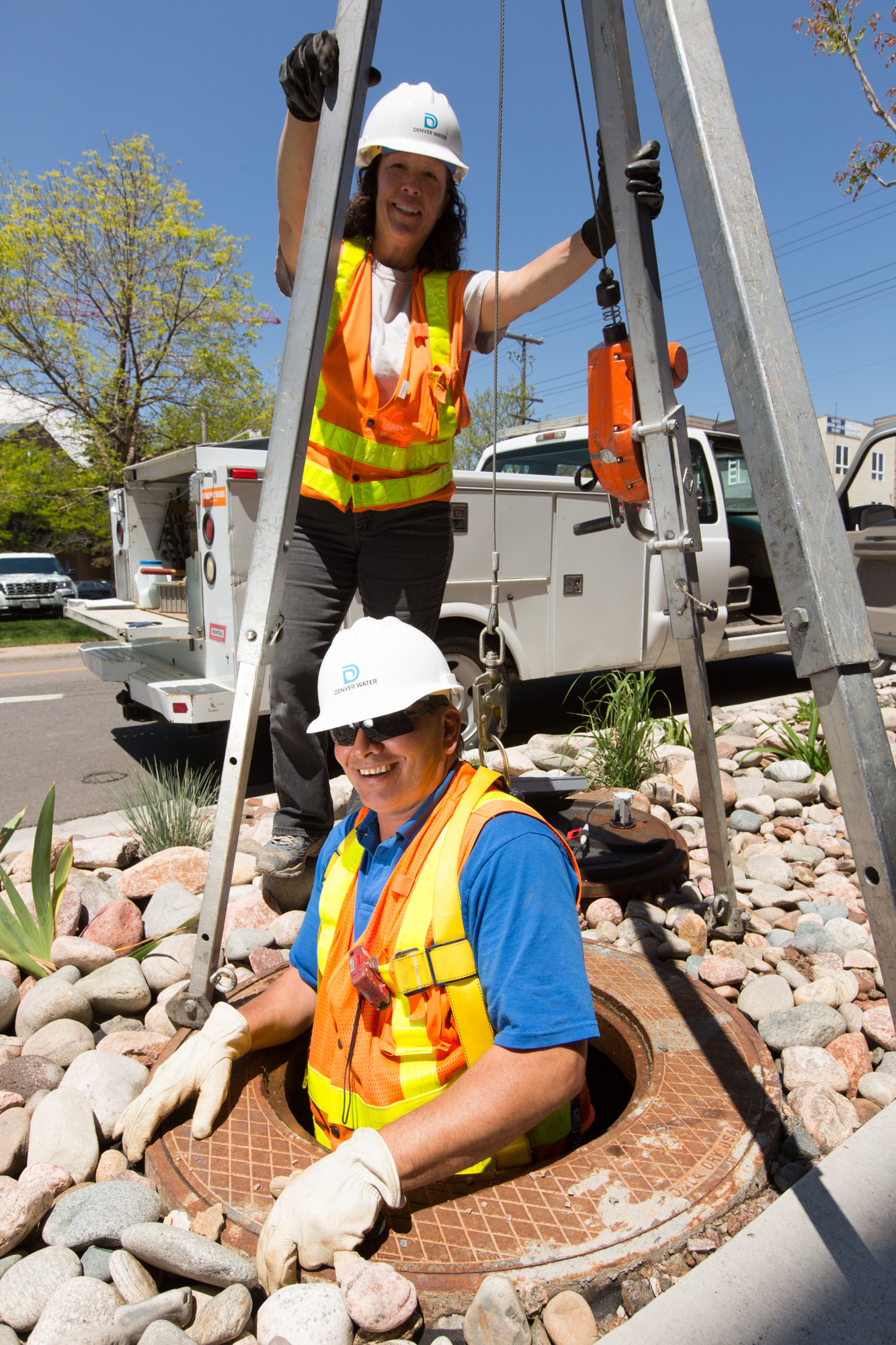
Some jobs really are the pits
You put on your safety gear, grab your gas detector and strap into a harness that’s attached to a tripod. Your co-worker — who stays on the surface in case you need to be pulled up quickly if unsafe air or other conditions are detected — lowers you into a manhole nearly 6 feet deep. This is your office for the day, where you work to install a water meter.
It’s a situation that would ignite fear and feelings of claustrophobia for most, and just one of the many tasks that has kept Kesha Coombs coming back each day of her 20-year career at Denver Water.
Coombs was hired as a meter reader and in the early years she worked to maintain the safety of meter pits. “I would go out into the field and perform any maintenance to make sure our meter pits were safe. This included raising or lowering meter pit covers (known as domes) or replacing those that were broken, trimming shrubs converging on meter pits, or leveling the ground around the pits to keep them from being covered by soil. Much of my work entailed making sure our meter pits weren’t creating tripping hazards or other unsafe conditions for our customers,” said Coombs.
Coombs began working as a meter inspector in 2006.
Today, she and the meter crews place new water meters and inspect meters installed by contractors to ensure they are compliant with Denver Water’s engineering standards.
"I absolutely love my job. I’m not sure I could ever do a desk job — I just love being outside, and I work with a group of really great guys,” said Coombs.
Coombs is the only woman in the meter shop, which she believes helps bring balance to the group. “My co-workers are always very caring and respectful. Maybe I help keep them grounded?” she said.
It’s sometimes a different story outside of Denver Water.
As Coombs travels across the city inspecting meters, she occasionally works with a contractor or customer who immediately dismisses her. “Once in a while I’ll come across someone who is condescending, assuming I don’t know my job because I’m a woman. It can be frustrating, but thankfully those folks are few and far between.”
With the booming redevelopment in Denver, Coombs stays busy inspecting meter pits for construction projects. Sometimes the building site may have older lead pipes underground. She works hard to educate contractors and customers about these lead pipes and provides information on the importance of replacing them. It’s a responsibility she takes very seriously.
"Ultimately, the contractor will complete a job and leave, and then the lead pipes become the homeowner’s problem,” said Coombs. “I try to go above and beyond to educate contractors and customers about lead and what they need to do to make sure their drinking water is safe,” she said.
Although working in a traditionally male career can be trying at times, Coombs says her co-workers and the challenges of the job keep her going, and she hopes to see more women taking on manual labor positions in the future.
"If you really want to choose a career that requires physical labor, you should go for it. Have confidence in yourself. Women are smart and strong, and if we truly want to, we can do any job a man can do. We might do it a bit differently, but we are just as capable,” said Coombs. “Stay positive and don’t change who you are to fit in — try to keep a little femininity in there, too.”


